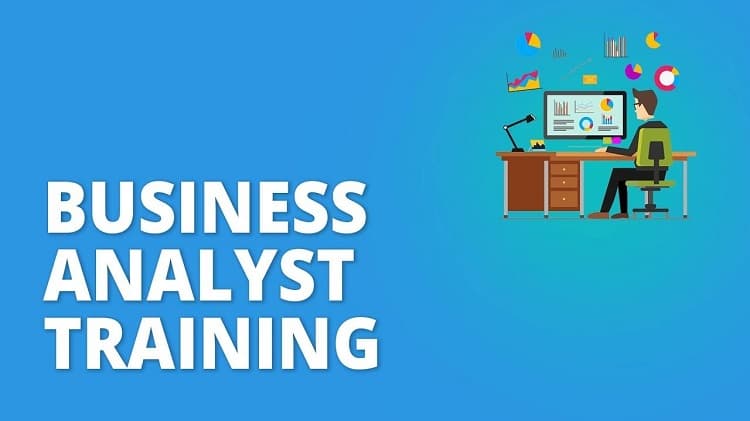
INTRODUCTION
Business Analysis is a combination of various techniques and processes necessary for understanding business requirements. To come up with specific solutions for business issues and also future growth. Basically, in the current scenario, business solutions mostly comprise organizational changes and improvements in business processes. Coming to Business Analysts, are professionals who are responsible for bridging the gap between business and IT with the help of Data Analytics. These professionals work on examining business requirements and delivering data-driven reports and recommendations to business stakeholders and executives. To get a better idea of their job responsibilities, you can opt for the Business Analyst Online Course for a better understanding. These professionals work as a connector, moderators, and mediators who integrates the business requirements using IT resources. They are adaptable to performing different business processes across various departments, comprising finance, technology, operations, architecture, engineering, and more.
Types of Business Analyst Jobs and Career Paths
1. Business Process Analyst
Job Description: A Business Process Analyst Role includes a critical thinking process. Basically, they work to draw inferences from process details. Further, they link these inferences to the big data by considering the business objectives and identifying process improvements. Besides, they are capable of building a large amount of information within a small framework.
Responsibilities: BPA does a large variety of jobs and works on different projects. Mostly they interact would be with the business teams and the IT Department. They often organize workshops, collect information and analyze this data. The job also includes analyzing workflow and identifying the most optimal solution for the same. A BPA also documents procedures and presents this data to stakeholders for discussion.
Skills Required/Qualification: BPAs need to have an understanding of how ERP, BPM, CRM, and BI tools work. And understand protocols like SOAP, WSDL, XML, and other critical protocols. The background of a BPA is mostly Computer Science, Business, or operations.
2. IT Business Analyst
Job Description: IT Business Analysts are responsible for the betterment of the quality of IT Products and services. And further analyzing useful data for informed business decisions and finding technological solutions to business needs.
Responsibilities: These Analysts, act as an information source between business branches. Moreover, they understand different strategic needs and plans for growth by utilizing IT data for business insights. Further, also runs A/B tests and analyses results. Besides, also sources and implements new business technology.
Skills Required/Qualification: Degree in Computer Engineering or Business Administration.
3. System Analyst
Job Description: The main role of a system analyst is to analyze how well the software, hardware, and wider IT systems fit an employer’s or client’s business needs. A system analyst also figures out requirements for a new system and implements them to monitor effectiveness.
Responsibilities: A System Analyst, gathers reports from users to produce specific modified systems. Collaborates with IT staff to produce new systems and examine the current system.
Skills Required/Qualification: A basic knowledge of C, COBOL, Software design, documentation, testing, and maintenance.
4. Usability or UX Analyst
Job Description: A UX Analyst looks after interface design or user experience for websites and software applications. Analysts who dedicate their time to building user experience requirements and creating the actual UI designs, mockups, or prototypes are known as UX Analysts.
Skills: An understanding of Graphic Designing with a focus on ease of use. Basically, to understand the end user’s behavior and thus builds an efficient user interface
5. Data Analyst
Job Description: A data analyst interprets data to analyze the results of a specific business problem that requires a solution. Improves statistical efficiency and quality.
Skills: An understanding of Programming Languages (R/SAS). Additionally, creative and Analytical Thinking with effective Communication and data visualization. Also familiar with SQL Databases, Database Querying Languages, Data Mining, Cleaning, and Munging, Advanced Microsoft Excel, and Machine Learning.
CONCLUSION
The faster expansion of software development has changed the dynamics of the BA’s involvement with a development project. Moreover, there’s a continuous demand for a good Business Analyst. To fulfill this requirement, you take Business Analyst Training in Noida for better job opportunities. However, with a proper training module, you learn how to work on agile projects throughout implementation and even through multiple releases. Thus, a business Analysts’ career hosts different job opportunities and continues to stay strong in the market.
I’m a blogger who contributes to the Croma Campus blog. Croma Campus is a training center that offers instruction in a variety of subjects.
https://www.cromacampus.com/